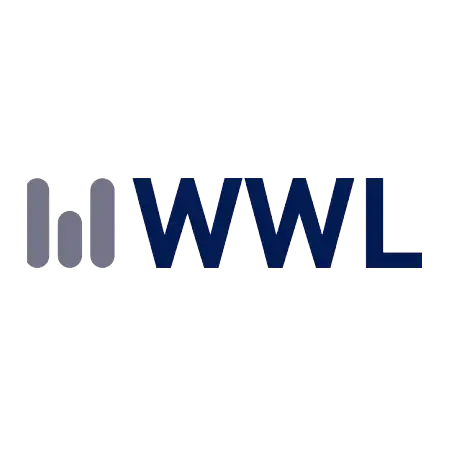Removal of offensive content from social media
In a recent judgment of April 2021, titled ‘X Vs. Union of India & Others’, the Hon’ble Delhi High Court has issued elaborate guidelines for Courts to pass orders for removal of offending or illegal content from the Internet/worldwide-web and also steps required to be taken by law enforcement agencies to implement such directions issued by a Court to ensure that despite court orders/directions offending content does not ‘resurface’ or remain available on the Internet/world-wide-web at the instance of errant parties.
In the referred case, the grievance of the Petitioner, a lady, was that her photographs and images posted by her on her private social media accounts on ‘Facebook’ and ‘Instagram’ were taken without her knowledge or consent and were unlawfully posted on a pornographic website called ‘www.xhamster.com’ by an unknown entity called ‘Desi Collector’. The Petitioner claimed that though her social media accounts had the requisite ‘privacy settings’ activated yet these accounts were compromised, and her photographs and images were posted on the pornographic website. Further, the Petitioner claimed that she had already filed a complaint on the National Cyber-Crime Reporting Portal as well as to the jurisdictional police but to no avail; and by reason of inaction on the part of the authorities, the photographs had received some 15,000 views within one week of them being posted. Further, the errant mischief-makers had redirected, re-posted and re-published the offending content onto other websites and online platforms. The Petitioner then approached the Hon’ble Delhi High Court seeing directions against the websites and law enforcement agencies.
Hon’ble High Court observed that as the issues involved examination of India’s statutory landscape, technological limitations and reality, it also framed the following questions for determination:
- Where a party seeks relief from the Court to the effect that certain offending or illegal content be removed from the worldwide-web, what directions are required to be passed by a court to make its order implementable and effective; and to which parties are such directions required to be issued?
- What steps are required to be taken by law enforcement agencies to implement such directions issued by a Court to ensure that despite court orders/directions offending content does not ‘resurface’ or remain available on the world-wide web at the instance of errant parties; and such parties do not succeed in brazenly evading compliance of such orders/directions with impunity?
Hon’ble High Court referred to the relevant provisions of the Information Technology Act, 2000 (“IT Act”), Information Technology (Intermediaries Guidelines) Rules 2011 and the newly enacted Information Technology (Intermediary Guidelines and Digital Media Ethics Code) Rules, 2021 (“2021 Rules”) and held that under these enactments, as part of due diligence to be performed, an intermediary is required to “inter alia inform its users that they must not host, display, upload modify, publish, transmit, store, update or share any information that ‘belongs to another person and to which the user does not have any right’ or which is inter alia ‘invasive of another’s privacy’.”
The Hon’ble Court held that photographs which are copied from Facebook and Instagram accounts and then uploaded on pornographic websites and then reposted onto other websites and online platforms without the consent of such person amounts to an offence under Section 67 of the IT Act in addition to other offences under the Indian Penal Code, 1860 (“IPC”). Even if the photographs are not obscene or offensive, even then such an act, without the consent of the person, would amount to a breach of the person’s privacy and that appropriate directions are required to be issued directing the State and other Respondents to forthwith remove and/or disable access to the offending content from the world-wide-web to the maximum extent possible. The following guidelines were issued by the High Court:
- A direction to the website or online platform on which the offending content is hosted, to remove such content from the website or online platform, forthwith and in any event within 24 hours of receipt of the court order, based on a ‘grievance’ brought before the court as contemplated in Rule 2(1)(j) of the 2021 Rules or otherwise, and upon a court being satisfied in any proceedings before it;
- A direction should also be issued to the website or online platform on which the offending content is hosted to preserve all information and associated records relating to the offending content, so that evidence in relation to the offending content is not vitiated, at least for a period of 180 days or such longer period as the court may direct, for use in investigation, in line with Rule 3(1)(g) of the 2021 Rules;
- A direction to the search engine(s) as the Court may deem appropriate, to make the offending content non-searchable by ‘de-indexing’ and ‘dereferencing’ the offending content in their listed search results, including de-indexing and de-referencing all concerned webpages, sub-pages or sub-directories on which the offending content is found;
- Directions issued must also mandate the concerned intermediaries, whether websites/online platforms/search engine(s), to endeavor to employ pro-active monitoring by using automated tools, to identify and remove or disable access to any content which is ‘exactly identical’ to the offending content that is subject matter of the court order, as contemplated in Rule 4(1)(d) of the 2021 Rules;
- Directions should also be issued to the concerned law enforcement agency/ies, such as the jurisdictional police, to obtain from the concerned website or online platform all information and associated records, including all unique identifiers relating to the offending content such as the URL (Uniform Resource Locator), account ID, handle name, Internet Protocol address and hash value of the actual offending content alongwith the metadata, subscriber information, access logs and such other information as the law enforcement agency may require, in line with Rule 3(1)(j) of the 2021 Rules, as soon as possible but not later than seventy-two hours of receipt of written intimation in this behalf by the law enforcement agency;
- Direction to the aggrieved party to furnish to the law enforcement agency all available information that the aggrieved party possesses relating to the offending content, such as its file name, Image URL, Web URL and other available identifying elements of the offending content, as may be applicable; with a further direction to the law enforcement agency to furnish such information to all other entities such as websites/online platforms/search engines to whom directions are issued by the court in the case;
- Post issuance of the court order regarding specific offending content, the aggrieved party was permitted to notify the law enforcement agency to remove the offending content from any other website, online platform or search engine(s) on which same or similar offending content is found to be appearing, whether in the same or in a different context. Upon such notification by the aggrieved party, the law enforcement agency shall notify the concerned website, online platform and search engine(s), who (latter) would be obligated to comply with such request; and, if there is any technological difficulty or other objection to so comply, the website, online platform or search engine(s) may approach the concerned court which passed the order, seeking clarification but only after first complying with the request made by the aggrieved party.
- Direction by the court to the aggrieved party to make a complaint on the National Cyber-Crime Reporting Portal (if not already done so), to initiate the process provided for grievance redressal on that portal;
- Most importantly, the court must refer to the provisions of section 79(3)(a) and (b) read with Section 85 of the IT Act and Rule 7 of the 2021 Rules, whereby an intermediary would forfeit the exemption from liability enjoyed by it under the law if it were to fail to observe its obligations for removal/access disablement of offending content despite a court order to that effect.
After passing the detailed guidelines, the Delhi High Court directed that the complaint should be transferred forthwith to the Cyber Prevention Awareness and Detection Unit (CyPAD) unit of Delhi Police, wherein the Petitioner would furnish all available information relating to the offending content, including the Image URL and Web URL pertaining to the offending image files. Therefter, CyPAD was directed to remove/disable access to the offending content, the Web URL and Image URL would be furnished by the Petitioner, from all websites and online platforms. Delhi Police was directed to take immediate action to remove the petitioner’s photographs from the errant websites and direction was issued to the search engines Google Search, Yahoo Search, Microsoft Bing and DuckDuckGo, to globally de-index and de-reference from their search results the offending content as identified by its Web URL and Image URL, including de-indexing and de-referencing all concerned web-pages, sub-pages or sub directories on which the offending content is found. The said search engines were further directed to endeavor to use automated tools, to proactively identify and globally disable access to any content which is exactly identical to the offending content, that may appear on any other websites/online platforms.
Anhad Law’s Perspective
The referred judgment is significant as it is for the first time provisions of the newly enacted 2021 Rules [Information Technology (Intermediary Guidelines and Digital Media Ethics Code) Rules, 2021] have been interpreted. This is also relevant since besides other directions, Hon’ble Delhi High Court also issued directions to search engines, like Google, Yahoo and Bing, “to globally de-index and de-reference” the offending content from their search results. Further, they were directed to use automated tools, to proactively identify and globally disable access to any content which is exactly identical to the offending content, that may appear on any other websites/online platforms.
A perusal of the 2021 Rules shows that the regulatory regime governing intermediaries has been sharpened in several ways. Under Rule 3(1)(d) of the 2021 Rules, it has been made incumbent upon an intermediary not to host, store or publish any unlawful information which inter-alia includes information that is violative of decency or morality, upon receiving actual knowledge about such information in the form of a court order or on being notified by the appropriate government or its agency. The Second Proviso to Rule 3(1)(d) makes it obligatory upon an intermediary to remove or disable access to such information as early as possible, but in no case later than 36 hours from the receipt of a court order or on being notified by the appropriate government or its agency. The purport of the 3rd proviso to Rule 3(1)(d) is also clear that even if an intermediary removes or disables access to unlawful content “on a voluntary basis” in compliance with the other provisions of the Rules, that shall not amount to violation of Section 79(2)(a) or (b) of the IT Act by the intermediary; but omission by an intermediary to observe the 2021 Rules shall expose the intermediary to punishment both under the IT Act as well as under the IPC in view of the new Rule 7 of the 2021 Rules.
Vide the referred judgment, the Hon’ble High Court has made it clear that an intermediary cannot take a plea that it is unable to remove or disable access to offending content despite such actual knowledge as contemplated in law.
-Manishi Pathak, Founding Partner & Ranjan Jha, Partner
Disclaimer: The contents of the above publication are based on easier understanding of relevant contents of a Court order/ government notification/ guidelines/ publication and a reader should refer to such a Court order/ notification/guidelines/ publication for further or specific details/ information, which will override the contents hereof. These are personal views of authors and do not constitute a legal opinion, analysis or interpretation. This is an initiative to share developments in the world of law or as may be relevant for a reader. No reader should act on the basis of any statement above without seeking professional legal advice.









